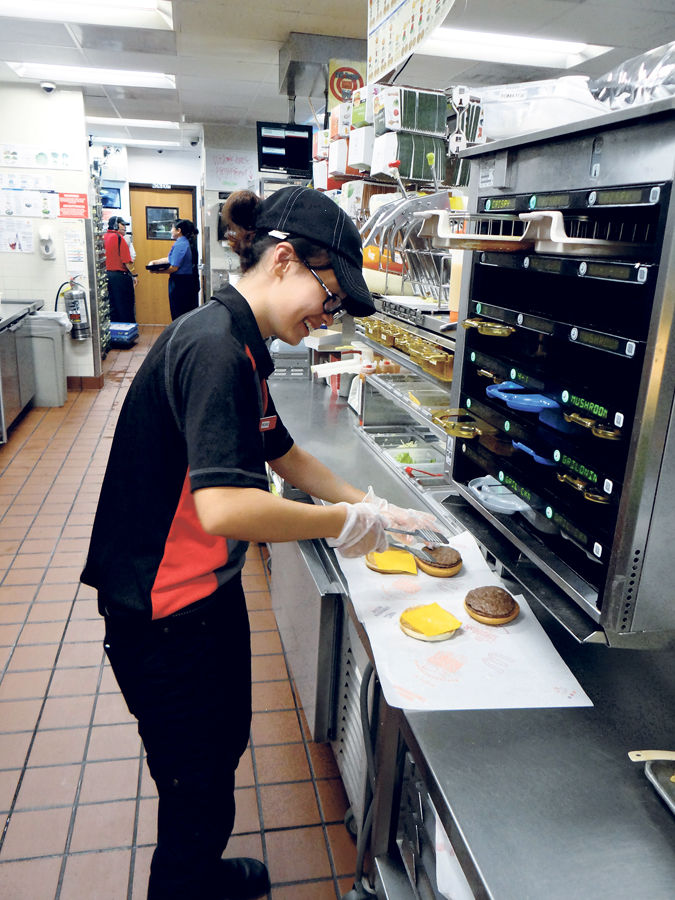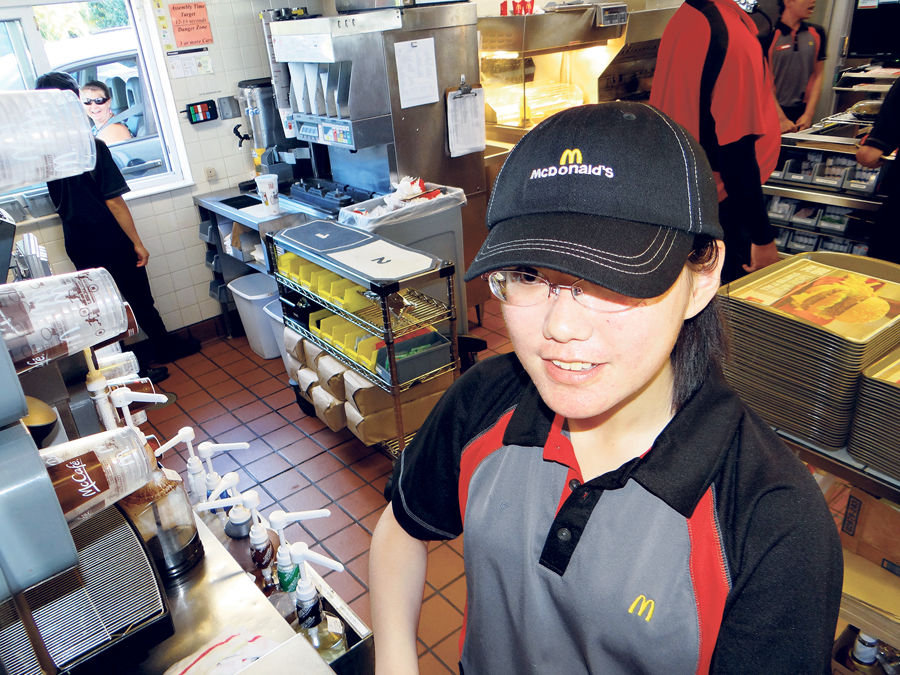There are plenty of ways to learn about a new culture. Books can offer insight to far away places, as can television shows, language CDs and movies. But it’s hard to beat the boots-on-the-ground approach, and for 27 Chinese students,
There are plenty of ways to learn about a new culture.
Books can offer insight to far away places, as can television shows, language CDs and movies.
But it’s hard to beat the boots-on-the-ground approach, and for 27 Chinese students, that means taking orders and flipping burgers at McDonald’s restaurants on Kauai thanks to a visa exchange program that gives students the adventure of working in a foreign climate.
“It’s so beautiful here and the people are very friendly,” said Iris Liao, from Anhui, China, who is studying preschool education at Shanghai Normal University and taking part in the exchange program working for McDonald’s. “It’s totally different from my country, the scenery, the customers, and the lifestyles.”
It’s her first job, and she she enjoys meeting new people through the work and said the McDonald’s employees have taught her a lot about cooperation.
That’s the intent of the program, said Darlene Chung, owner of the McDonald’s stores on Kauai. For many of the Asian students, it’s the first time they traveled outside their home country.
“They are all trying to learn better English and to learn a new culture,” she said. “They enjoy the experience before going home to start school.”
The experience is made possible by the U.S. State Department J-1 Visa Exchange Visitor Program. The Chinese students arrived in June and will work until just before school starts again in September. They’re working with all five McDonald’s on the island.
McDonald’s has also hosted J-1 students from Brazil, Argentina, and the Philippines. It depends on what groups are available when the restaurants are in need of additional staff during the busier parts of the year, Chung said.
The Chinese students are mostly first-year undergraduates, while others working around the island as professionals are already in graduate school. But even the younger students have good grades and speak several languages.
The program partners with sponsoring companies that provide work, depending on background, experience and goals. There is work for students at colleges, in government, even as teachers, engineers, researchers and physicians.
“These are highly educated, high-quality individuals,” Chung said. “They are good kids. We love having them, and we learn from their culture too.”
Margaret Chou, from Shanghai, is studying finance at Shanghai University.
Chou was not aware she would be sent to Kauai, but found it a pleasant surprise for its scenery and people. While she hits the university books hard, she said she hadn’t learned to cook yet and so she has learned a lot about food preparation while working her middle shift four days a week at McDonald’s.
“There is more natural scenery here,” Chou said. “On the Mainland, it would be more like Shanghai, so we can see more of that scenery here.”
Nathan Arnold, spokesman for the Bureau of Educational and Cultural Affairs at the U.S. Department of State, said there are 202 Summer Work Travel participants in Hawaii this summer. They are at resorts and spas, fast food restaurants and cafes, in hotel and hospitality management, at beach clubs, ice cream shops, clothing and sports stores.
Nationally, there are nearly 300,000 students from China in the program. That is more than double from any other Asian country. The students come direct or pay private companies to make the arrangements for the trip.
The only requirement is passing an English proficiency test. Once approved, the students can request a location but it is the state department that assigns them to a partnering company that arranges for employment and lodging that students pay for with their wages.
Fancy Fan of Shanghai is studying English at Shanghai University. She said she appreciates an experience outside of the classroom where she can interact with local people.
“While on Kauai, we have to think and talk in the American way,” Fan said. “It helps a lot with listening and retention.”
The local accents and slang are not the standard English taught in the classroom, Fan said. Even here, she notices the difference between the locals and the way the language is spoken on the television news from Honolulu.
“That accent is more standard and familiar to me,” Fan said. “I find that the local people are very friendly and they always say hello to us first.”
One difficult change is with transportation. In China, Fan said transportation is convenient with many routes.
“I find it a little inconvenient to transfer,” she said. “When I come to Lihue, if I miss my connection I will have to wait another hour to catch the transfer bus.”
Ann Thao is studying cultural economics at Shanghai University. She said the J-1 program is preferable to coming alone. Thao said she was pleased to see so many people from other countries visiting here. Most of all, she enjoys the slower pace of life on Kauai, as compared to the hustle and bustle of the international center of Shanghai.
“I want to learn the language and so I took this program,” Thao said. “I find that outside of the classroom this is a way to practice every day.”



